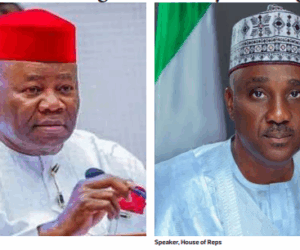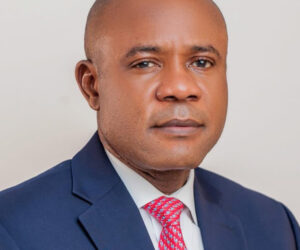1
The 2024 ‘State of the World’s Children’ report is a damning indictment of global inaction, particularly in Africa, where maternal and newborn deaths continue to soar.
Indeed, UNICEF also issued a strong warning on the 2024 World Children’s Day noting, “The future of childhood hangs in the balance if urgent action is not taken to safeguard children’s rights in a changing world.” This is not mere rhetoric—it is a call for collective action.
Similarly, the World Prematurity Day underscored the brutal reality: complications from preterm births remain the leading cause of death in children under five, claiming one million lives annually—35 percent of all newborn deaths. And yet, three-quarters of these deaths are preventable with existing, cost-effective interventions. That’s not just tragic—it’s unforgivable.
In addition, the AlignMNH Collective Action for Maternal Newborn Health rightly pointed out that scaling up these interventions is fraught with challenges. Providing level-2 care for small and sick newborns demands specialised skills, sustained investment, and political will—resources that are sorely lacking in many national budgets. Respiratory support, safe oxygen, infection management, and diagnostics are all critical, yet remain elusive in last-mile communities. Antimicrobial resistance and poor laboratory capacity further complicate care. And let’s not forget the human dimension: care must protect the mother-baby bond and support neurodevelopment. This is not just about survival—it’s about dignity, quality, and thriving.
Governments and stakeholders from 24 countries gathered in Dakar, Senegal, at the West and Central Africa Regional Consultation for Every Woman Every Newborn Everywhere (EWENE) and Child Survival Action (CSA). Their mission? To prioritise actions that reduce maternal, newborn, and child mortality. But consultations and communiqués are not enough. We need action, not applause.
The International Maternal Newborn Health Conference (IMNHC2023) in Cape Town echoed this urgency. Nigeria, Africa’s most populous nation, is among 60 countries at risk of missing the maternal, newborn, and stillborn targets of the Sustainable Development Goals (SDGs). This is not a distant threat—it is a present crisis.
The World Health Organisation reports that infant deaths account for half of under-five mortality, especially in Central and Southern Asia and Sub-Saharan Africa. Nigeria alone bears the second-highest burden of maternal and child deaths globally. This is a national emergency masquerading as a development challenge.
Dr Tedros Adhanom Ghebreyesus minced no words at IMNHC2023: “Africa is where seven out of 10 women die due to pregnancy-related issues. Every year, 4.5 million mothers, newborns, and stillborns die from preventable causes.” Let that sink in—preventable causes. These are not deaths by fate; they are deaths by failure.
Ghebreyesus rightly stated, “Where a child is born or how much money its family has should not determine whether it lives or dies.” Yet this remains the grim reality for millions. It is a moral disgrace.
President Cyril Ramaphosa of South Africa added his voice, declaring, “Our continent’s future is being born again—we are called upon to start a new chapter by investing in women and newborns.” His words are stirring, but they must be matched by bold policy and budgetary commitments.
In his submission for the Thomson Reuters Foundation, Ramaphosa lamented that despite progress, Africa still has the lowest rate of facility-based births globally—just over half, far below the 90 percent target needed to meet SDG goals. He asked the hard questions: Why do seven out of 10 maternal deaths still occur in Africa? If we truly value mothers and babies, why are we so slow to act?
Ramaphosa’s call to action is clear: “To realise Africa’s ambitions of economic and social prosperity, we must focus on the survival and well-being of mothers and babies.” Every day, 12,000 lives are lost due to complications around birth—half of them in Africa. The burden of preterm births has barely shifted in two decades. Stillbirths remain unacceptably high, with two million families suffering preventable losses each year, often in silence and stigma.
“This cannot be tolerated,” Ramaphosa insists. And he is right. We must speak for change—in our parliaments, our communities, and our clinics. We must invest where it matters most: in data systems, midwifery, and gender equity. Women’s access to sexual and reproductive health services is not a privilege—it is a fundamental right.
The numbers are staggering, but the solution is within reach. By 2030, we can avert 30 million maternal and newborn deaths and stillbirths worldwide—15 million in Africa alone. But only if we act.
The cries of mothers, grandmothers, and grieving fathers echo across the continent. They do not need our sympathy—they need our resolve. Nigeria and its neighbours must stop treating maternal and newborn health as a footnote in national development. It is the foundation.
This is not just a health issue. It is a human rights issue. It is a justice issue. And it is a test of our collective humanity. Now is the time for action.








